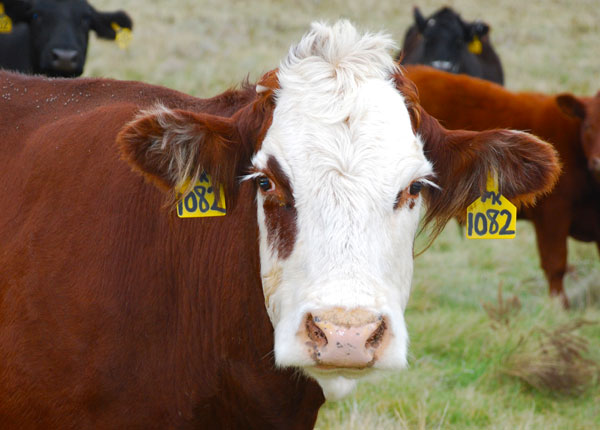A Breeding Soundness Exam: Insurance for Your Breeding Season
A breeding soundness examination offers some reassurance before the breeding season.
April 21, 2013

I received the call on a Monday. I seem to receive this call 6-8 times each year. This particular rancher had just finished getting his cows diagnosed for pregnancy. He had 43 falling-calving cows. Last fall, these cows were synchronized for artificial insemination (AI) and were exposed to one bull for about five weeks, and a second bull for seven weeks. Only 22 cows conceived and all of them conceived to the AI date. The first question I asked this rancher was the obvious one; did you get a breeding soundness exam (BSE) performed on your bulls? His response was that the bulls had a BSE when he bought them, but not in the last 2-3 years. We checked the bulls and, sure enough, both were infertile.
What is a BSE? A BSE is a fertility exam performed on bulls by a veterinarian. A BSE has three components – scrotal circumference, a physical exam, and a semen evaluation.
• Scrotal circumference is highly correlated with semen output and serving capacity. It is recommended that a 12-13-month-old bull have a scrotal circumference of at least 30 cm.
• The physical exam is performed to simply ensure that a bull is physically up to the challenge of the breeding season. Are his feet and legs structurally correct? Is he free from injury and/or infection?
• The veterinarian then examines the bull's semen to determine if the sperm cells are normal.
The bull is then graded as satisfactory, unsatisfactory, or deferred. Bulls classified as unsatisfactory are considered infertile, and shouldn't be used for breeding. Bulls that receive the deferred classification have some irregularities in their ejaculate and a second collection is required to determine his fertility. A BSE is a highly reliable tool to use to identify bulls that are infertile.
Results from surveys nationally and in Kentucky indicate that fewer than 30% of cattlemen routinely subject their bulls to a BSE. I am amazed by how few people obtain a BSE in their herd bull before each breeding season. We purchase car, health, life, and crop insurance why wouldn't we purchase a little breeding-season insurance? We protect ourselves against most disasters but we don't protect our cow herd from the ultimate disaster? A BSE will cost $50-100 so it is a fairly inexpensive, easy form of risk management.
I'm fairly certain that the cattleman that called me wished he had gotten a BSE on his bulls before he found out that he had 21 open cows. The $150 investment in breeding insurance (BSE) seems small compared to the lost income from 21 cows ($15-18,000). So protect your investment. Obtain a BSE on all your bulls 30 days before every breeding season.
You Might Also Like:
Avoid These Common Breeding Season Mistakes
Wyoming Dairyman, Beef Producer Will Serve As 2013 NCBA President
Tips To Avoid Wrecks Caused by Disease, Weather & Other Goblins
80+ Picture-Perfect Grazing Scenes From Readers
You May Also Like


.png?width=300&auto=webp&quality=80&disable=upscale)
